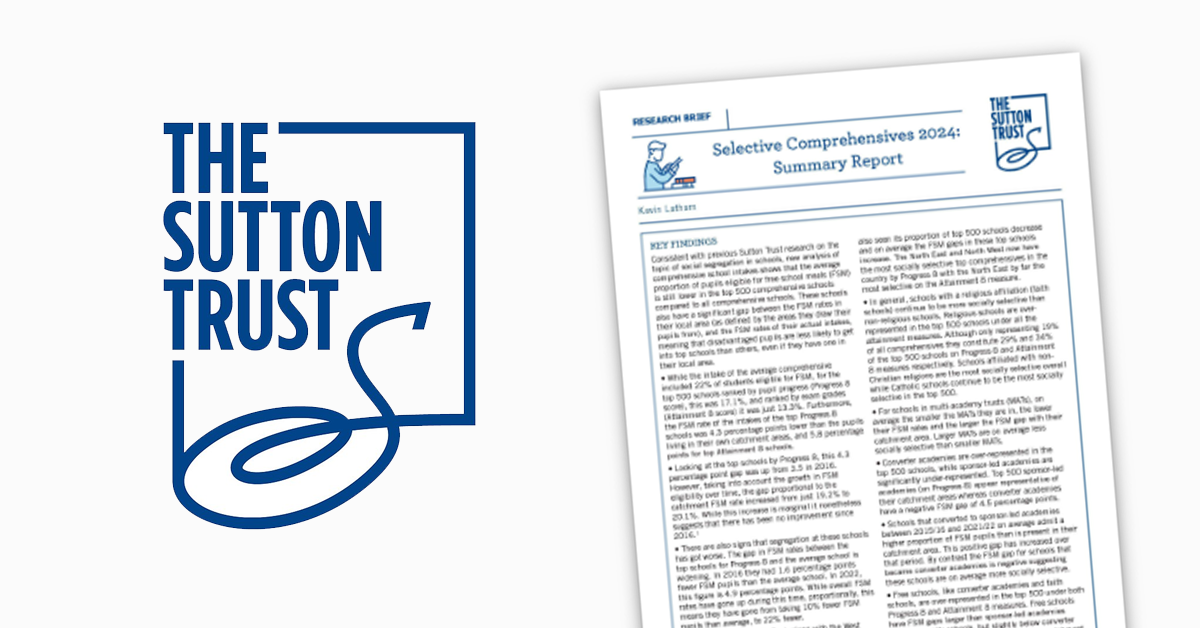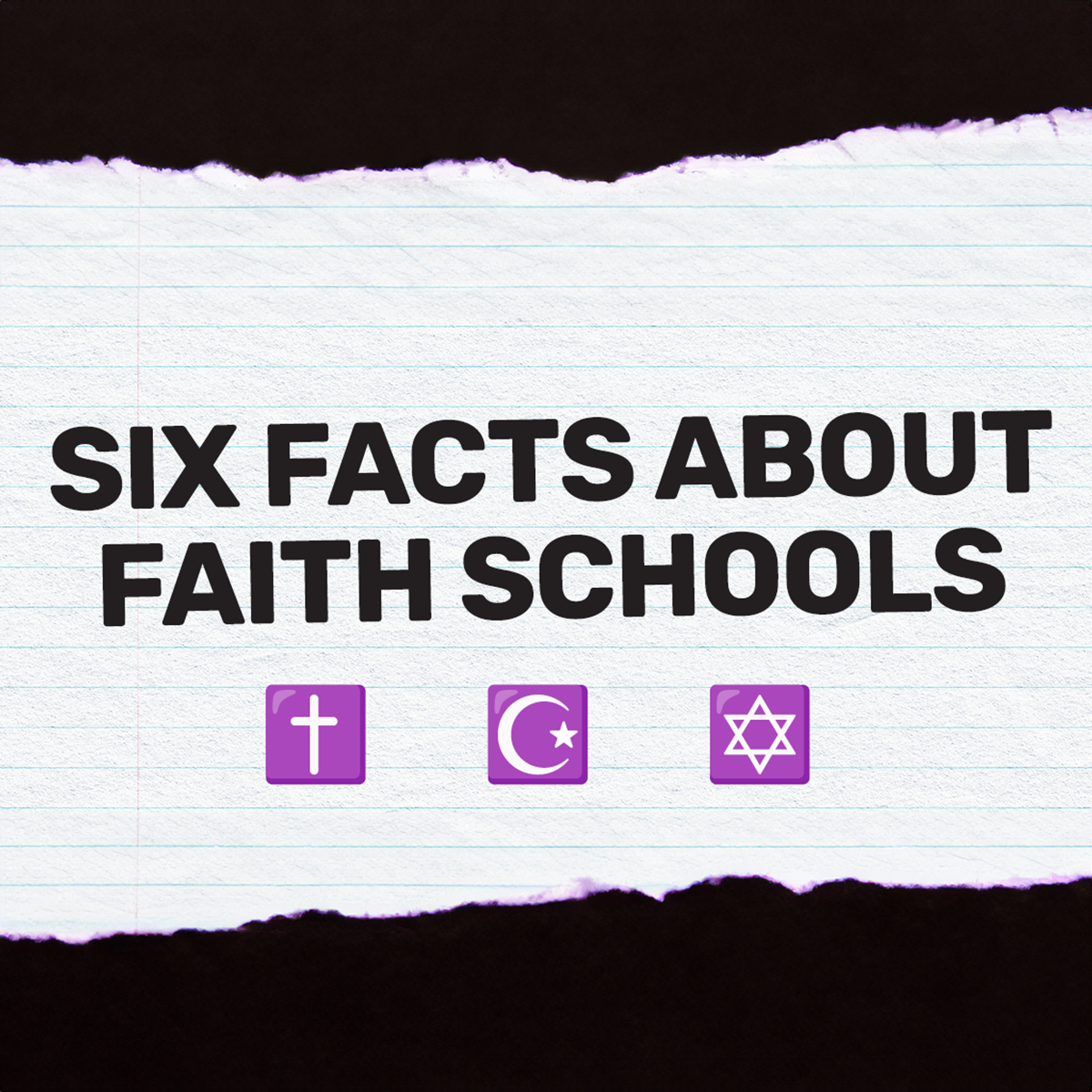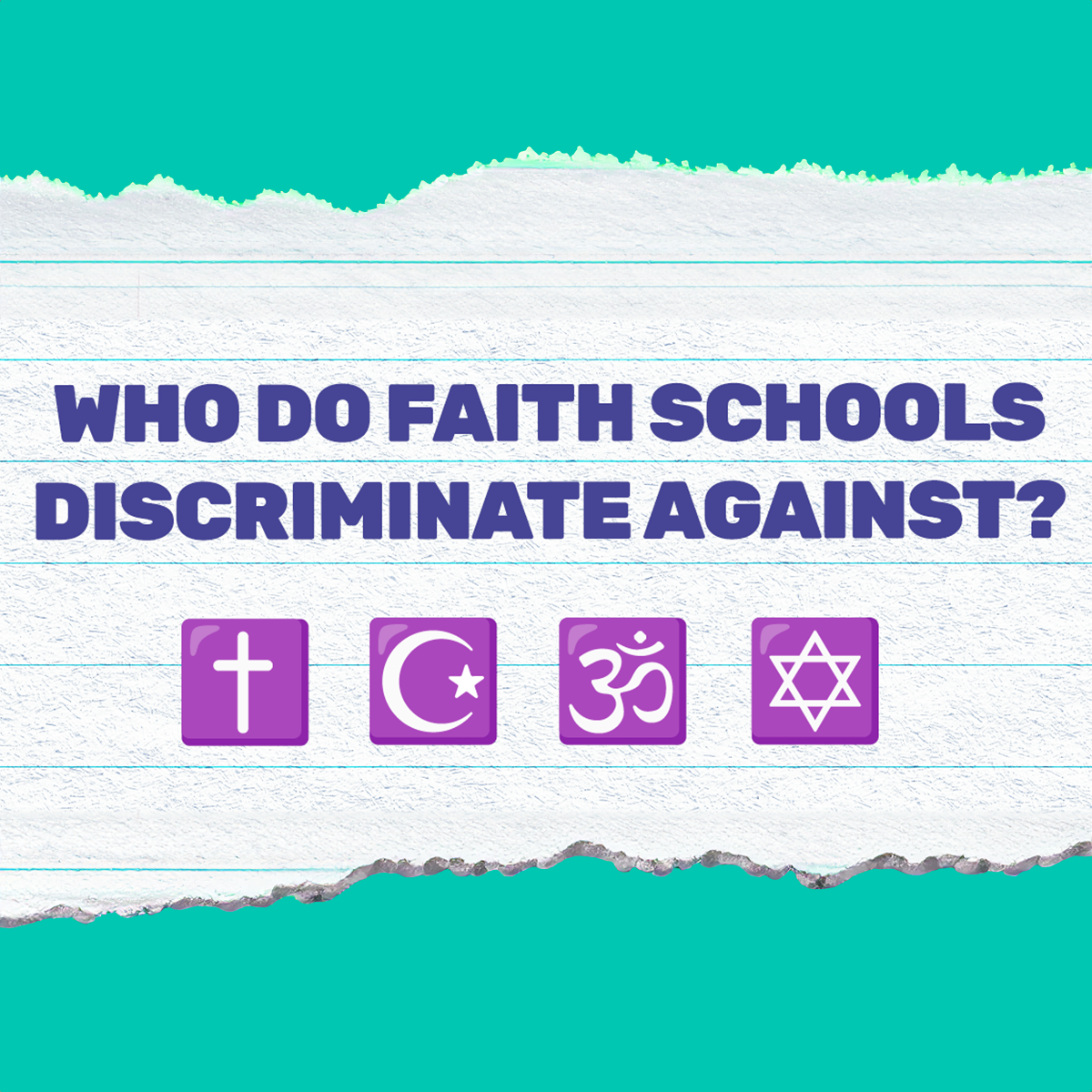
Confirmed fact: Faith schools are ‘consistently more socially selective’ than schools without a religious character, a new report by the Sutton Trust has found.
Faith schools admit fewer students eligible for free school meals (FSM) than would be expected given their catchment areas.
This trend is especially pronounced among the ‘top-performing’ faith schools. Shockingly, 19 of the 20 most socially selective schools in England have a religious character (95%). Catholic schools were the least representative of the population and the least likely to cater to disadvantaged children in their catchment areas.
Humanists UK – which has long campaigned for an end to religiously selective admissions policies on the basis that they segregate children by faith, socio-economic status, ethnicity, and prior attainment – said the study provides yet more evidence that faith-based admissions are bad for society.
Humanists UK has called for state schools to be open to all children regardless of religion or belief.
The Sutton Trust is the UK’s largest charity focusing on social mobility in the education sector. It is highly regarded for its authoritative, well-researched, and influential reports on the state of social mobility in the UK and the educational and long-term impact this has on some of the poorest children in society.
Mounting evidence
The report is just the latest in a series of research published by the Sutton Trust looking at the issue of school admissions.
Earlier research included a poll which found that 80% of parents think that state schools should have a mix of pupils from different backgrounds.
The new report focuses on the top 500 schools according to attainment measures ‘Progress 8’, which measures pupil progress in eight key subjects over the course of their secondary education, and ‘Attainment 8’, which measures pupils’ average attainment in exams in those same subjects. While faith schools ‘are over-represented in the top 500’ under both measures, the reality was, ‘they have lower FSM rates (14.7% compared to 17.9% for non-religious schools on the Progress 8 measure)’. They also have ‘on average a larger (negative) FSM gap’.
The ‘FSM gap’ is the difference between the proportion of children on FSM in the school and the proportion of children on FSM in the catchment area. The report therefore concludes that ‘religious schools are more likely to be socially selective than nonreligious schools even if they often have a larger geographical catchment area compared to non-religious schools due to admissions criteria related to religious observance’. The final point is important, because some religious groups claim that, when their schools appear to be unrepresentative of their local areas, this is only because they have a wider catchment than other schools. The differences between the intakes of religious schools and other schools lend further weight to the view that faith schools don’t have better attainment because of their faith character, but because of their selectivity .
The report also found that there are big differences in the social selectivity of faith schools depending on their religious affiliation, with Catholic schools the most socially selective amongst the top 500 schools with other (non-Christian) faith schools ‘not far behind’. When compared to all comprehensives (not just high-performing ones), schools affiliated with other (non-Christian religions) are the most selective (with a negative FSM gap of 7.4 percentage points compared to 0.2 for schools with no religion). However, Catholic schools were still the next most selective, with a negative FSM gap of 6 percentage points. Within this in mind, the report recommends that faith schools should ‘take particular care to ensure their criteria are not contributing to socio-economic inequalities in access’ and suggests this ‘could be done by… implementing policies such as pupil premium priority’ according to which children in receipt of the pupil premium (additional school funding for disadvantaged pupils) would be prioritised in admissions.
Many schools set their own admissions criteria, so could put these policies in place if they wished. However, the report falls short of recommending that faith admissions are abolished altogether.
Humanists UK Director of Public Affairs and Policy Kathy Riddick said:
‘This report provides yet more evidence that faith-based admissions policies are bad for children, bad for families, and bad for society. Religious schools don’t perform better because there is something intrinsically better about a faith-based education. They perform better because they are socially selective, and they are socially selective because their faith-admissions criteria disadvantage children from poorer backgrounds.
‘These schools must take their fair share of disadvantaged children. The most effective way to guarantee this is for the Government to amend the School Admissions Code to require every state school to be open to all regardless of religion or belief.’
Notes
For further comment or information, media should contact Humanists UK Director of Public Affairs and Policy Kathy Riddick at press@humanists.uk or phone 020 3675 0959.
Read the full Sutton Trust report
Read more about our work on faith schools
Humanists UK is the national charity working on behalf of non-religious people. Powered by over 120,000 members and supporters, we advance free thinking and promote humanism to create a tolerant society where rational thinking and kindness prevail. We provide ceremonies, pastoral care, education, and support services benefitting over a million people every year and our campaigns advance humanist thinking on ethical issues, human rights, and equal treatment for all.



